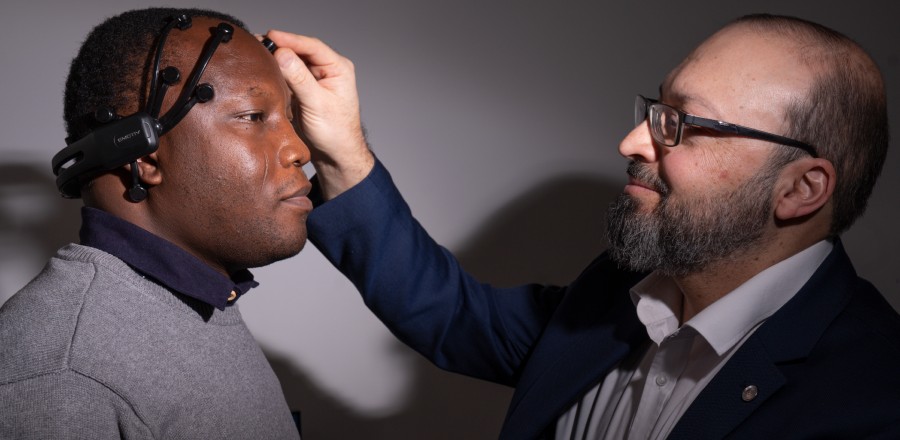Glasgow Caledonian drives innovation with entrepreneurship initiatives

Glasgow Caledonian University is making significant strides in entrepreneurship, with successful participation in programmes aimed at nurturing the development and commercialisation of groundbreaking technologies.
Under the leadership of Professor Hadi Larijani, Director of the University’s SMART Technology Research Centre, and the dedicated efforts of the Research Innovation Office, the University recently applied to the Scottish Enterprise High Growth Spin Out Programme. This initiative is designed to translate research breakthroughs into commercial ventures, with a particular emphasis on Professor Larijani’s pioneering epilepsy EEG headset technology. The programme encompasses various stages, including opportunity qualification, company creation, and the pursuit of financial backing from Scottish Enterprise.
The project aims to create a wearable device that uses artificial intelligence (AI) to monitor patients for epileptic seizures. By analysing historical data, Professor Larijani’s team has trained AI software to identify potential seizures. The headset would enable simultaneous monitoring of multiple patients, improving both the accuracy and efficiency of diagnosis. If successful, this innovation could significantly enhance patient care in Scotland and beyond.
Professor Larijani and his team are now working on setting up a spin-out company and a wearable prototype for the headset.
The University is also actively engaged in the Grand Scale Ignite Programme, spearheading innovation with three teams led by Professor Larijani, Dr Mark Williams, and Dr Niall Macquaide respectively. Supported by a Scottish Government Ecosystem grant, this programme offers invaluable academic entrepreneurship training, covering crucial aspects of commercialisation such as market analysis, go-to-market strategies, and fundraising techniques.
Dr Williams is looking to develop a new therapeutic antibody for Multiple Myeloma (blood cancer) patients. Multiple Myeloma (MM) is a significant health concern due to its high mortality rate and lack of a cure for most patients. Current treatments often lead to relapse and are associated with high toxicity. While some monoclonal antibodies (mAbs) have been used in MM treatment, they often lose effectiveness over time due to acquired resistance mechanisms. To address this, a novel high-affinity multi-targeting therapeutic antibody has been developed by Williams's research group and collaborators. This antibody aims to bypass resistance mechanisms and engage strongly with its targets, potentially leading to improved and long-lasting clinical efficacy in MM treatment. This innovation could also set the stage for future advancements in multi-targeting mAbs to enhance outcomes for MM patients.
Dr Macquaide aims to address left ventricular systolic dysfunction and heart failure, which are significant health challenges with limited treatment options. Current surgical interventions are invasive and costly, while attempts to develop pharmaceutical therapies have been unsuccessful due to efficacy and safety concerns. The project focuses on developing a stable and safe peptide that enhances cardiac contractility. This peptide has shown positive effects in rabbit tissue by disrupting the binding of a phosphodiesterase to the intracellular calcium pump (SERCA), thereby increasing the activation of its regulator (phospholamban) and enhancing calcium cycling. The goal is to create a therapeutic agent that can improve cardiac function in both preclinical models of cardiac disease and human cardiac muscle.
Susan Armstrong, from the University’s Research and Innovation Office, said: “The University's robust involvement in these initiatives underscores its steadfast commitment to fostering a culture of entrepreneurship and driving forward the commercialisation of transformative technologies within its academic community.
“Glasgow Caledonian isn't just educating future leaders; it's actively shaping the future through innovation and entrepreneurial excellence.”
